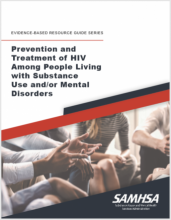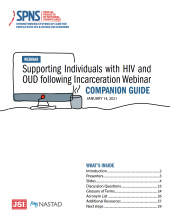
Language is foundational to how we understand and interact with ourselves and others. Unclear language can lead to confusion and inefficiencies, while stigmatizing and prejudicial language leads to harmful practices and dehumanizes people.



Language is foundational to how we understand and interact with ourselves and others. Unclear language can lead to confusion and inefficiencies, while stigmatizing and prejudicial language leads to harmful practices and dehumanizes people.
Building on last month’s episode about providing HIV and substance use care for people who are incarcerated, this month the Boston Medical Center Team talks with Dr.
Navigating the HIV and substance use systems of care presents a number of unique challenges, many of which can become more complex depending on a person’s housing, employment, mental health, or economic situation.
For Boston Health Care for the Homeless nurse Megan Sonderegger, providing client-centered care means literally meeting her clients where they are.
There are so many factors that impact adherence and health outcomes. During this Connecting Care podcast, Drs. Alex Walley, Jessica Taylor, and Sim Kimmel discuss HIV prevention and treatment among people who inject drugs.
COVID-19 has changed the way society operates in countless ways. During our inaugural podcast, our team of addiction specialists and HIV providers, Drs.
This webinar companion guide provides information for the January 2021 Strengthening Systems of Care: Supporting People with HIV and Opioid Use Disorder following Incarceration webinar.
This virtual session summary describes key takeaways from the August 2020 Let's Talk about SSPs as Essential Services conversation.
Developed as part of the Strengthening Systems of Care for People with HIV and Opioid Use Disorder project, this document contains brief descriptions of federal policy and systems changes due to coronavirus 2019 (COVID-19) that relate to the HIV and substance use systems of care, along w